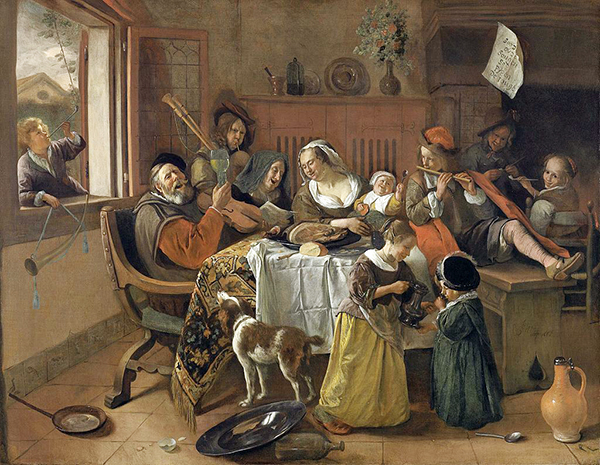Dinner at Home: The Key Ingredient
- JOHN CUDDEBACK
"When you coming home, dad?" "I don't know when, but we'll get together then. You know we'll have a good time then." - Cat's in the Cradle, song by Harry Chapin

I wonder how many children—and let's talk about households with the father in it—have the kind of time and relationship with their father that they really need. We can speak about this frankly. No pointing fingers, blame game, or self-flagellation. It's about the children.
The fact is that even conscientious fathers find it difficult to make the time and the contexts for a rich relationship with their children. Many of us know this from both sides of the situation. While blame, regret and guilt are not the answer, neither is an implicit acceptance with a shrug of the shoulders. What can I do to improve—this is the question.
Yes, life is very busy. And various common aspects of our contemporary context are serious complicating factors: such as, separation of our profession from homelife, and the unnatural segmentation of life into too many areas demanding attention, to name just two. These are not challenges unique to you or me; they are endemic to our age. When we consider further endemic factors that heighten our children's need for us while simultaneously isolating them (think, e.g., social media—even for those not 'on it'!), there is no surprise that our children face a crisis.
Dinner together at home can be an anchor of presence and connection—if we choose to make it such.
A practical approach will not pretend that these challenges can be ignored or eliminated. Rather, it will ask how to make the most of our situation, mitigating negative factors to the extent possible, and especially focusing on positive things that remain in our power. Here is where the possibilities are truly exciting.
The basic contexts for us fathers really to connect with our children remain in reach if we are savvy and intentional in actualizing them. No one can do it for us, no one can replace us. We need to be systematic and consistent.
The most obvious natural context is the household meal. Perhaps its most powerful feature is its regularity. Dinner together at home can be an anchor of presence and connection—if we choose to make it such. Throwing the ball in the backyard, working together on projects, reading a book out loud, going for a walk: these are precious and powerful, but realistically they are also intermittent. Dinner together can provide a foundation and backdrop that vivifies these others, in part by saving them from feeling like dad is playing 'catchup,' making up for his not being around much.
Eating together is the cradle of civilization. But more to the point for us, it can be the cradle in which our relationship with our children—not to mention our spouse—takes root and flourishes. They will feel the difference today, and every day. And whether they grow up to be just like us, or not, we can make many good times, now. Together.
 This is Meaghen Gonzalez, Editor of CERC. I hope you appreciated this piece. We curate these articles especially for believers like you.
This is Meaghen Gonzalez, Editor of CERC. I hope you appreciated this piece. We curate these articles especially for believers like you.
Please show your appreciation by making a $3 donation. CERC is entirely reader supported.

Acknowledgement
 John Cuddeback. "Dinner at Home: The Key Ingredient." LifeCraft (July 20, 2022).
John Cuddeback. "Dinner at Home: The Key Ingredient." LifeCraft (July 20, 2022).
Reprinted with permission from the author. Image credit: Jan Steen, Public domain, via Wikimedia Commons.
The Author
 John Cuddeback is professor of Philosophy at Christendom College and the author of True Friendship: Where Virtue Becomes Happiness and Aristotle's Ethics: A Guide to Living the Good Life. He and his wife Sofia consider themselves blessed to be raising their six children—and a few pigs and sundry—in the shadow of the Blue Ridge on the banks of the Shenandoah.
John Cuddeback is professor of Philosophy at Christendom College and the author of True Friendship: Where Virtue Becomes Happiness and Aristotle's Ethics: A Guide to Living the Good Life. He and his wife Sofia consider themselves blessed to be raising their six children—and a few pigs and sundry—in the shadow of the Blue Ridge on the banks of the Shenandoah.




